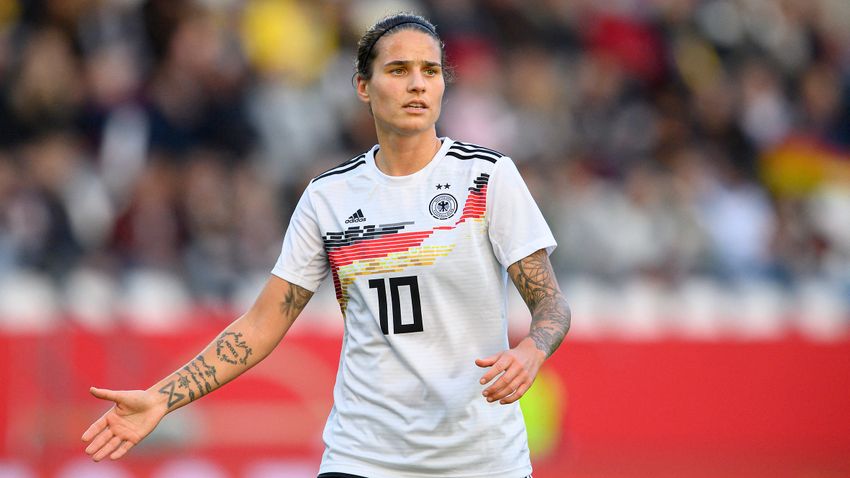The women’s Cavani, the women’s Neymar and the women’s Mbappé have already been in France. In fact, in her first three years in France, Dzenifer Marozsán won the player of the year award from the organization of professional footballers – the same award was won by Edinson Cavani, Neymar and Kylian Mbappé in order for men between 2017 and 2019.
He can’t be German, he doesn’t behave like that!
Marozsán was European champion in 2013 and Olympic champion in 2016 with the German national team, and he was the star of the latter final in the legendary Maracana stadium. He gave the Germans the lead in the 2-1 Olympic final against Sweden, and then played a leading role in the decisive goal: after his free kick, one of the Swedes unfortunately touched the ball that bounced off the post, so it was officially an own goal, but no matter how you look at it, at least one and a half of the two German goals were attributed to Marozsán.
In most of his matches in the German national team, the Hungarian flag decorated his shoes, as he said, it was always important for him to show where he came from.
“For me, Hungary is my grandmother, stuffed cabbage and I could go on and on,” he said in a 2017 interview. – I watched all the Hungarian matches at the 2016 European Championship, but I didn’t see all the German matches. Even in France they know that I am not German. One of our masseurs even said that I can’t be German, I don’t behave like that.
The father gave Kiprich an assist in the national team
For him to kick goals in non-Hungarian colors, life arranged it this way. Although he was born in Budapest on April 18, 1992, and his entire family is Hungarian, he moved to Germany when he was four years old, grew up there, started playing football there, and was selected for the national team there. His father, János Marozsán, was a four-time Hungarian national team footballer, and in the early 1990s he played as a midfielder for Siófok, Honvéd, BVSC and Pécs. He made his debut in the national team in 1990 in a 4-1 winning match against Turkey, and he assisted József Kiprich from a corner for the third Hungarian goal.
In 1996, at the age of 31, János Marozsán moved to the German lower division 1. FC Saarbrücken, half way through. The family was stuck abroad, and Dzenifer was lost to Hungarian football, but let’s quickly add that it is not at all certain that she could have had a similar career at home, since German women’s football, unlike the Hungarian one, belongs to the world elite.
Cover image: Dzenifer Marozsán has scored 33 goals in 111 matches for the German national team (Photo: Anke Waelischmiller / SVEN SIMON / dpa Picture-Alliance via AFP)

/cloudfront-eu-central-1.images.arcpublishing.com/diarioas/J26ACNX4ZXYZCYJK4XXOPA36TE.jpg)